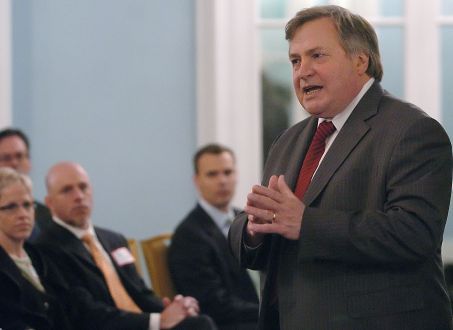On the evening of July 31, 2011, the Senate and The House of Representatives have reached a tentative agreement. Ending a perilous stalemate, President Obama announced an agreement on Sunday night on a compromise that would avoid the nation’s first-ever financial default. The deal would cut more than $2 trillion from federal spending over a decade.
“Default would have had a devastating effect on our economy,” Obama said at the White House, relaying the news to the American people and financial market around the world. He thanked both the leaders of each party.
news to the American people and financial market around the world. He thanked both the leaders of each party.
After a tough week of meetings and negotiations, the House of Representatives, Senate leadership, and the president are able to feel good about their accomplishment. According to Democrats and Republican sources, here are the key elements of the deal. There is still work to be done and the leaders of both parties are rounding up votes for the deal.
The debt ceiling increase tentatively would be around $2.1 trillion and the spending cuts would be equal to increase over 10 years. The formation of a special Congressional committee to recommend further deficit reductions that may take the form of spending cuts or tax increases. The special committee must make recommendations by late November, before the Thanksgiving recess.
 Congress must also approve those cuts by December 23, or automotive cuts across the board go into effect, including cuts to federal defense programs and Medicare. This trigger is designed to force action on the deficit reduction committee’s recommendations to both Democrats and Republicans. There would also be a vote in both houses on a balanced budget amendment.
Congress must also approve those cuts by December 23, or automotive cuts across the board go into effect, including cuts to federal defense programs and Medicare. This trigger is designed to force action on the deficit reduction committee’s recommendations to both Democrats and Republicans. There would also be a vote in both houses on a balanced budget amendment.
As the Congress gets down to the 11th hour, the two houses are close to a deal. During President Bush’s eight years the debt limit was raised 19 times, without the fuss and fight of this Congress. When Bush took office the debt limit was $5.95 trillion, and when he left it was $9.81 trillion.
President Obama has been deeply involved in trying to win a debt deal that both parties find agreeable and can work with. “He’s getting absolutely no sleep. He’s working tirelessly, meeting with his economic team, doing a lot of outreach, exploring all kinds of possibilities for compromise,” top Obama aide Valerie Jarrett told Reuters Insider. This has translated into even longer days than normal at the White House, which already begins with a senior staff meeting at 7:30 am in the morning.
It appears that all the hard work has paid off for President Obama, and his administration. It is still too early to relax, but all the leaders are announcing that a deal has been struck. Democrats won’t like the fact that Medicare could be exposed to automatic cuts, but the sizes of the Medicare cuts are limited. They are designed to be taken from Medicare providers, and not beneficiaries.
Finally, the House of Representatives and the Senate are starting to compromise, and do what is best for the citizens of the country. Somehow President Obama must make bipartisan a reality in Washington, and get the two parties to cooperate, and work together. Making decisions together that improve and enhance the country is the job of our representatives. 
































